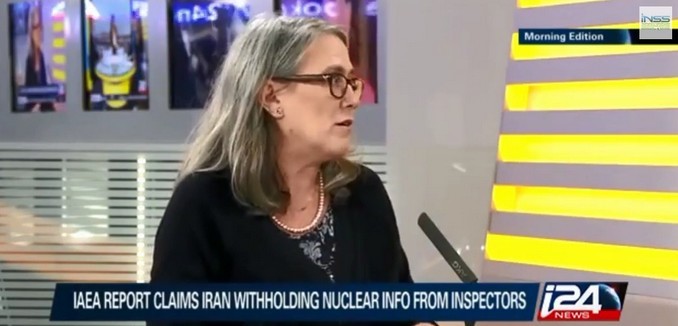The failure to address Iran’s work towards weaponization is the biggest failing of the emerging nuclear deal between the P5+1 nations and Iran, according to proliferation expert Emily Landau of the Institute for National Security Studies, The Times of Israel reported yesterday. After describing the deal as “deeply flawed,” the Times quotes Landau:
“There is some logic to that, but at the end of day, the biggest lacuna is that weaponization is not being confronted straight out and placed in the forefront of the negotiations,” Landau told The Times of Israel. “Your strongest card in the talks is to expose the fact that Iran has violated the Nuclear Nonproliferation Treaty for decades by working on nuclear weapons capabilities. This has to be at the center of the discussion — that Iran has been stonewalling for years, in clear violation of the NPT.”
Most news reports on the prospective deals have been focusing on the number of centrifuges that Iran would be allowed to keep, Landau said. While allowing Iran to operate 6,500 centrifuges was a lamentable concession — the P5+1 originally said they would insist on no more than 1,500 — the reports that a deal is nearing completion without having addressed the Islamic Republic’s weaponization efforts is even more worrisome, she said.
“The issue of weaponization hardly gets mentioned in the reports about the upcoming agreement,” said Landau, who directs the INSS’s Arms Control and Regional Security Project.
Aside from failing to address the nuclear aspects of Iran’s weaponization program, Landau also criticizes the deal for not reining in Iran’s intercontinental ballistic missile (ICBM) program. ICBMs Landau points out, “are not non-nuclear, they are delivery systems for nuclear weapons.”
Landau added that objections to the deal include “[m]ost nuclear experts” and that opposition to to the terms is “really much broader than Israeli officials and hawks in Congress.”
In an interview yesterday (embedded below) with Israeli channel i24, Landau made a similar observation, saying “[t]here seems to be some kind of disconnect between the political process, the P5+1, Iran political process that’s been going on for the last 13 months and the parallel process with the IAEA [International Atomic Energy Agency] trying to clear up some of these questions with regard to Iran’s weaponizations activities, and you would think that these two processes should be fused together, because, of course, weaponization activities are at the heart of this negotiation.”
The emerging details of the deal between Iran and the West are raising concerns that it will give Iran an on-ramp to a nuclear weapon.
[Photo: INSS Israel / YouTube ]




